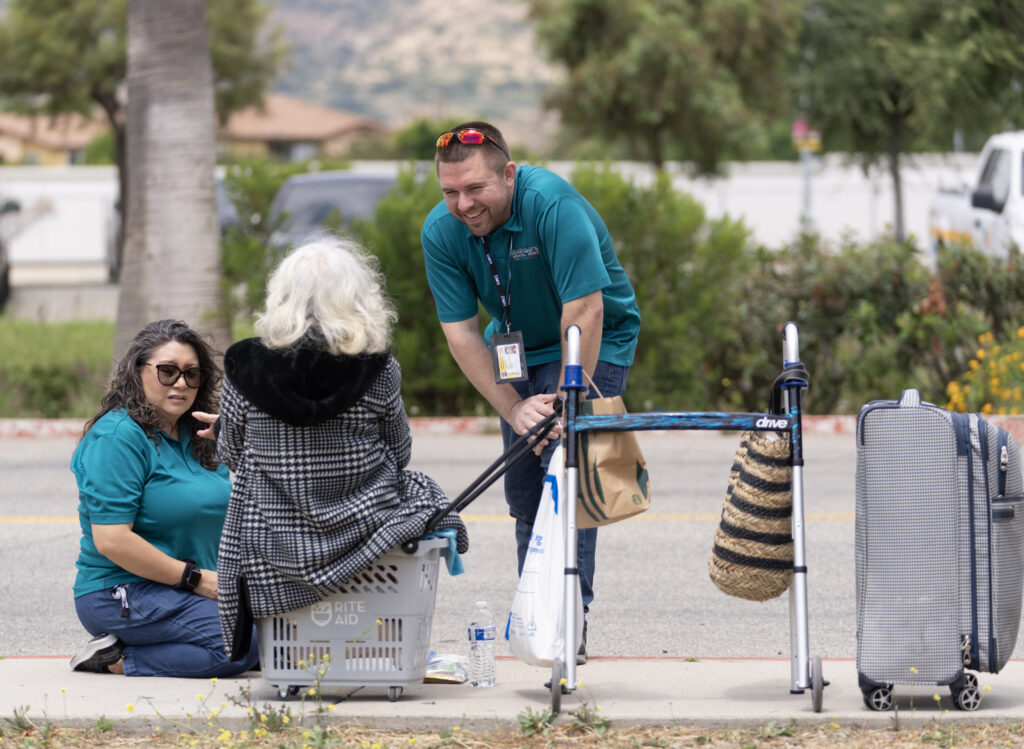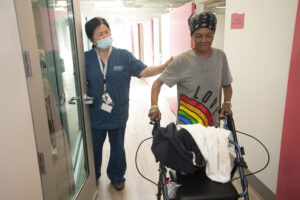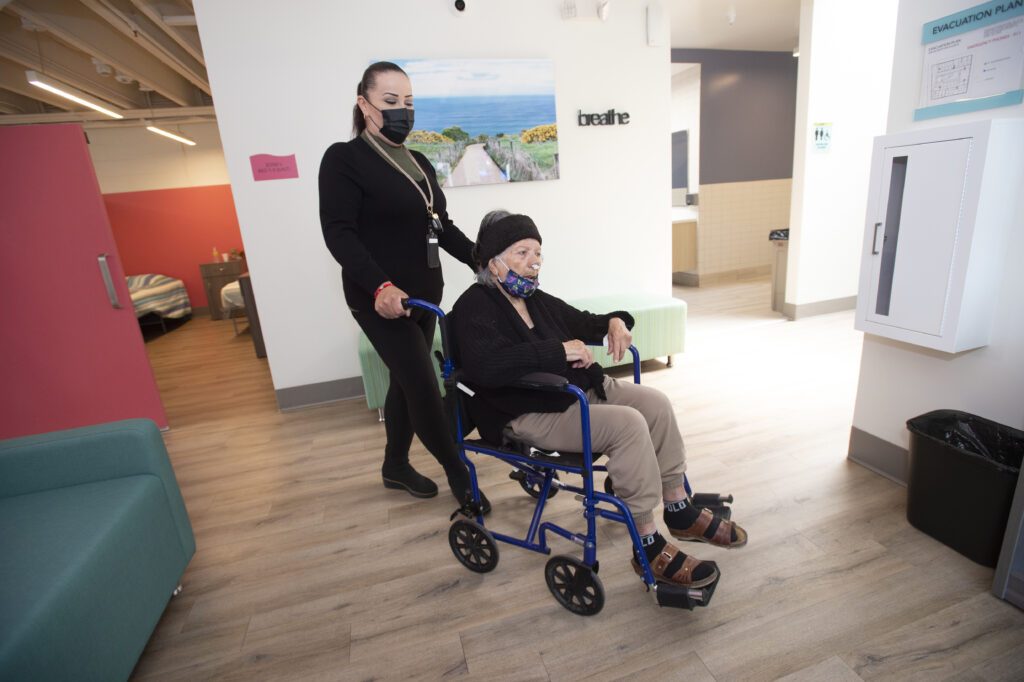
Federal Court Approves Historic LA County and LA Alliance Settlement to Further Strengthen Response to Homelessness
Agreement Expands Mental Health/Substance Use Disorder Beds, Wraparound Services, Street-Based Outreach
A federal court today approved Los Angeles County’s groundbreaking settlement with the LA Alliance for Human Rights that commits up to $1.24 billion in additional funding to provide 3,000 beds for people with mental health and substance use disorders experiencing homelessness, while also expanding street-based outreach and wraparound services.
The new resources come on top of $293 million the County pledged in a separate agreement over the course of this three-and-a-half-year lawsuit to provide 6,700 beds for people experiencing homelessness near freeways as well as for unhoused seniors.
Combined, the County’s total commitment amounts to a record $1.53 billion and dovetails with the County’s ongoing efforts to scale up and fast-track efforts to address homelessness in response to the Board of Supervisors declaring a state of emergency in January.
SETTLEMENT
The settlement between LA County and LA Alliance will include the following additional resources to fight the homelessness crisis.
- 3,000 new mental health and substance use disorder beds.
- 450 new subsidies for board-and-care beds serving the most vulnerable, including the elderly and disabled.
- increasing from 27.5 to 44 the number of specialized outreach teams serving people who face significant barriers to housing due to physical, mental, and behavioral challenges.
- providing a comprehensive suite of supportive services for eligible occupants of more than 13,000 permanent and interim housing beds the City of Los Angeles committed to build in their own settlement with LA Alliance.
A federal monitor will assist the court in overseeing the settlement, which becomes effective on the date the court enters an order dismissing the plaintiffs’ claims against the County and terminates on June 30, 2027.
HISTORIC MILESTONE
The Board of Supervisors hailed the settlement as a historic milestone.
 “It took a long time and a lot of hard work from many people to get to this point, but this is finally an agreement we can be proud of,” Board of Supervisors Chair Janice Hahn said. “This is an achievement that will mean real care and housing for thousands of people who are struggling with mental illness and addiction. I am grateful to Judge Carter for pushing the County to do better, to my colleagues on the Board and our County family for their support, and to Mayor Bass for being my partner in this effort.”
“It took a long time and a lot of hard work from many people to get to this point, but this is finally an agreement we can be proud of,” Board of Supervisors Chair Janice Hahn said. “This is an achievement that will mean real care and housing for thousands of people who are struggling with mental illness and addiction. I am grateful to Judge Carter for pushing the County to do better, to my colleagues on the Board and our County family for their support, and to Mayor Bass for being my partner in this effort.”
“The only way to get people off of the streets is by providing beds and supportive services. This settlement agreement will bring people indoors and help communities like Skid Row overcome decades of systemic marginalization,” said Supervisor Hilda L. Solis, First District. “I look forward to expanding the resources and services that have been proven to end homelessness.”
Supervisor Holly J. Mitchell, Second District, added, “The County remains committed to doing all we can to address the homeless crisis. This settlement will help us meet the urgent needs of people experiencing homelessness in our communities by building on the County’s ongoing work to deliver wrap-around services efficiently and compassionately.”
“In this time of crisis, the County has committed to an historic expansion of services and specialized beds for our acutely ill – all of which are expedited through our emergency declaration on homelessness – and we will continue to lead with urgency to meet the moment and deliver the results our communities need,” said Supervisor Lindsey P. Horvath, Third District. “I am glad that the County and City of LA, together, can return our focus to the work ahead, and move forward in our mutual commitment to meet this humanitarian crisis with the urgency it deserves and at the scale required.”
“I appreciate that this settlement helped bring more transparency and accountability to the table when it comes to homeless services planning,” Supervisor Kathryn Barger, Fifth District, said. “I’ve been a firm and vocal proponent for both so that our constituents clearly understand what will be delivered and by when. My vision is for us not to depend on litigation to achieve this. We need to continue restructuring our management practices and approach to how we, as a region, deliver coordinated homelessness solutions. It’s the only way we will ever make a difference at the scale that’s desperately needed by those who are perishing on our streets.”
Additional details of the settlement are spelled out in the fact sheet below.
FACT SHEET
The settlement between the County and LA Alliance will provide the following additional resources to fight the homelessness crisis:
- 3,000 new mental health and substance use disorder beds for people experiencing homelessness.
- 450 subsidies to help provide individuals at risk of homelessness with enriched residential care at existing adult residential facilities or at residential care facilities for the elderly beds, also known as board and care beds.
- A significant increase in the number of County Multi-Disciplinary Teams conducting clinical outreach in the City — from 22 to 34 teams — ensuring there is at least one team in each LA City Council District. These teams have expertise in medical and mental health, substance use disorders, case management and peer support.
- Increasing from 5.5 to 10 the number of Homeless Outreach and Mobile Engagement teams, which specialize in psychiatric support and intensive case management. These teams will be assigned exclusively to the City of Los Angeles.
- Funding and providing supportive services, including mental health and substance use disorder services, for occupants of the permanent housing units and interim housing units that the City has committed to building as part of its own separate agreement with the LA Alliance.
- Provide City-funded outreach teams with access to various County services directly and through coordination with outreach teams assigned within the City.
- Work to ensure County outreach teams have access to County Homeless Initiative-funded high service need interim housing beds for people experiencing homelessness.
- Work with the City to make City- and/or County-owned land available within the City for new interim or permanent supportive housing sites.
- Work with the City to advocate and apply for additional state and federal funding to fund services for people experiencing homelessness with mental health illness or substance use disorders.
- Monitoring to assist the court in overseeing and enforcing the County settlement and filing quarterly status reports with the court on the County’s commitments.
- Consider and potentially amend this settlement agreement to enhance housing and services citywide or countywide if the City or County obtains significant new funding from the City’s United to House L.A. or if the County receives new funding from the potential future extension of Measure H, a voter-approved quarter-cent sales tax from 2017-2027 dedicated to preventing and addressing homelessness.
 The County’s commitment to helping people experiencing homelessness predates the lawsuit, which was filed in March 2020.
The County’s commitment to helping people experiencing homelessness predates the lawsuit, which was filed in March 2020.
Since July 2017, when the County began to tap Measure H funds to respond to the crisis, the County has placed 98,000 people in permanent housing, provided nearly 140,000 with temporary shelter, prevented at least 28,000 others from falling into homelessness, and provided many more with a comprehensive suite of supportive services.
Since January 2023, when the Board declared a local emergency on homelessness, the County has further ramped up efforts to resolve encampments, strengthen partnerships with cities, provide additional interim and supportive housing, and expand mental health and substance use disorder services, including by launching the Pathway Home program.

